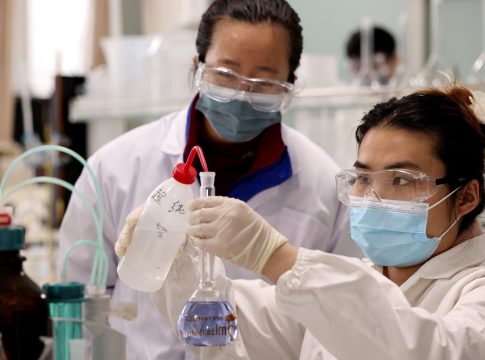China Poised to Overtake the U.S. in Biotechnology: What It Means for Global Health
As competition heats up between the U.S. and China, biotechnology is emerging as a critical frontier. Recent reports underscore China’s rapid advancements in this sector, with significant implications for both countries and global health.
A Close Race in Biotech
The Harvard Belfer Center for Science and International Affairs recently highlighted that among five key tech sectors—including AI, semiconductors, and quantum technology—biotechnology offers China the most immediate chance to surpass the United States. While the U.S. is currently ahead, the narrowing gap indicates that breakthroughs could shift the balance of power swiftly.
The urgency of the situation was echoed in an April report from the U.S. National Security Commission on Emerging Biotechnology. They warned of a potential "ChatGPT moment" for biotech—suggesting that if China leads in this arena, the U.S. may find it nearly impossible to catch up.
Federal Strategy Needed
The commission emphasized that the U.S. should invest at least $15 billion over the next five years to bolster its domestic biotech capabilities. As China thrives with its flexible regulations and robust infrastructure, U.S. biotech is facing a troubling landscape marked by layoffs and empty research labs in established hubs like Boston and Cambridge.
Key Takeaways:
- China has a more agile regulatory system, allowing faster drug development.
- U.S. pharmaceutical companies are increasingly acquiring Chinese-developed therapies.
- A focused U.S. strategy is crucial to remain competitive.
China’s Biotech Growth: A State-Led Initiative
China’s success in biotechnology isn’t a mere coincidence. Since 2007, the country has implemented multi-year plans and state policies aimed at establishing itself as a global leader in key technologies. Meanwhile, the U.S. lacks a cohesive strategy, resulting in missed opportunities.
Biotechnology could become a powerful tool for China, just as rare earth elements have given them leverage over industries like automotive manufacturing. Experts believe that cooperation between the two nations in biotech is unlikely, leading to increased tensions and pressures.
The Global Landscape of Biotech
Despite the competitive climate, some companies are bridging gaps through innovation. Insilico Medicine, a startup utilizing AI for drug discovery, exemplifies this trend. Their research teams are spread across China, North America, and the Middle East, showcasing the inherently global nature of biotechnology today.
Global Collaboration Highlights:
- Biotech companies can benefit from diverse regulatory frameworks.
- AI is driving down costs in drug development.
- The Chinese market serves as a vast resource hub for various biotech innovations.
Looking Ahead
With data showing that China has exceeded the U.S. in clinical trials and patent growth, the stakes in biotechnology are incredibly high. The next five years could define the field, and the landscape will likely demand that companies navigate international regulations smartly to survive.
As biotechnology becomes increasingly intertwined with global health, understanding these dynamics will be essential—not just for industry insiders, but for everyone invested in the future of healthcare and innovation.
In a world where health and technological advancements are rapidly evolving, monitoring these shifts can inspire informed decisions—both professionally and personally.

Writes about personal finance, side hustles, gadgets, and tech innovation.
Bio: Priya specializes in making complex financial and tech topics easy to digest, with experience in fintech and consumer reviews.

